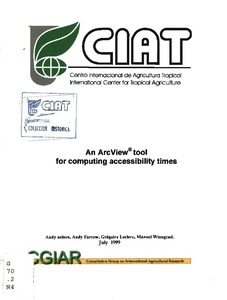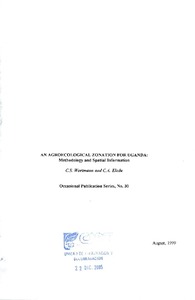Mission
To reduce hunger and poverty, and improve human nutrition in the tropics through research aimed at increasing the eco-efficiency of agriculture.
People
CIAT’s staff includes about 200 scientists. Supported by a wide array of donors, the Center collaborates with hundreds of partners to conduct high-quality research and translate the results into development impact. A Board of Trustees provides oversight of CIAT’s research and financial management.
Values
- Shared organizational ethic
- We respect each other, our partners, and the people who benefit from our work. We act with honesty, integrity, transparency, and environmental responsibility in all of our joint endeavors.
- Learning through partnerships
- We work efficiently and pragmatically together and with partners. Considering our diversity to be a key asset, we adapt readily to change and strive to improve our performance through continuous learning.
- Innovation for impact
- We develop innovative solutions to important challenges in tropical agriculture, resulting in major benefits for the people who support, participate in, and profit from our work.
Members:
Resources
Displaying 546 - 550 of 958An agroecological zonation for Uganda: methodology and spatial information
Farmer participatory research in soil management in Indonesia
Soil degradation, both due to soil erosion and nutrient removal, is a major problem in cassava fields. Most of the existing management technologies that have been developed have had little success in adoption. Some of the reasons are that the technology developed is technically oriented, based on experiment station research with very little farmer involvement.
Farmer participatory research in cassava soil management and varietal dissemination in Vietnam
Farmer Participatory Research (FPR) in Vietnam has been carried out since 1994 in collaboration with CIAT, with the objective of improving the adoption of soil conservation practices in cassava fields. Two villages in Pho Yen district, Bac Thai province; one in Thanh Hoa district, Vinh Phu province; and one in Luong Son district of Hoa Binh province were selected as pilot sites for implementing the FPR methodology.
Farmer participatory research in soil management and varietal selection in Thailand
A pilot project on the use of Farmer Participatory Research (FPR) methodologies with the objective of enhancing farmer adoption of practices that minimize soil erosion in cassava-based cropping systems, was conducted jointly by DOA and DOAE with technical and financial support from CIAT in two sites in Nakhon Ratchasima and Sra Kaew provinces. The activities involved a preliminary survey using RRA methodologies, the setting out of demonstration plots, as well as farmers meetings and farmers field trips to observe the demonstration plots.




